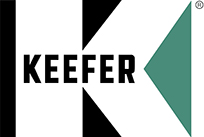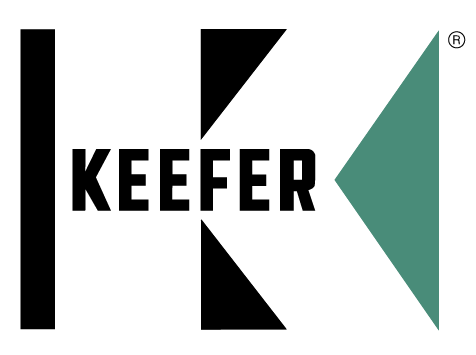A guy walks into a lawyer’s office and asks, “Can you tell me how much you charge?”
“Of course,” the lawyer replies, “I charge $500 to answer three questions.”
“Don’t you think that’s an awful lot of money to answer three questions?”
“Yes it is,” answers the lawyer, “What’s your third question?”
Though lawyer fees have been fodder for jokes for as long as we can remember, they’re really no laughing matter. Companies routinely pay much more than $500 per hour to answer far fewer than three questions. How did it get to this point? The answer is bloat. Let me give you a peek behind the curtain.
As firms take on more business and begin to grow, they add more attorneys and staff to handle these increasing workloads. With continued growth comes potential for expansion into other states to take advantage of business opportunities there. Growth means expensive nameplates on big buildings and brass, mahogany and marble office spaces to draw larger corporate clients. This also means hiring more attorneys at high salaries, as well as partnership opportunities for those attorneys who are able to bill significant hours and generate business to enrich the firm.
Business development naturally leads to the need for even more attorneys and office space, and in turn more costs and overhead, much of which are passed along to the client in the form of exorbitant hourly rates. In most larger cities, these rates will exceed $500 per hour, which can have a chilling effect on the businesses these attorneys are meant to serve. Voila! You now have a bloated law firm. And guess who gets to pay to keep it afloat? That’s right. You.
DIY Could Mean RIP
What options exist for companies that want top-tier legal advice without the bloat? I can’t speak to all legal specializations, but in the area of Preventive Law, we often see businesses deciding to “go it alone” rather than pay these high law firm rates. While these companies may enjoy not having to pay legal fees, what few realize is that they place themselves at exponentially higher risk. Ironically, such DIY practices can cause even bigger problems:
-
Insurance policies are legalese monstrosities, containing complex language and articles that can later be exploited by insurers. A company that buries its head in the sand, hoping those policies will react in the event of loss, not only ensures the language will be exploited, but further increases the likelihood of gaping coverage holes.
-
Failing to proactively manage your insured claims and lawsuits can lead to strategies which are not in your best interests, resulting in skyrocketing premiums or even loss of coverage.
-
Relying on non-lawyers such as insurance brokers to help you understand the legalese contracts and claims strategies could limit your recourse (hint, an insurance policy is a contract with your insurer, not your broker or anyone else).
-
Signing vendor and supplier (and other) agreements without fully understanding and negotiating the terms in advance means you may have unwittingly assumed obligations that can blindside your business later.
-
Failing to develop and implement internal policies and procedures can result in significant exposure to business interruption, cyber events, HR risks and regulatory actions.
These are not meant to be scare tactics, but rather highlight issues we see on a regular basis. Understandably, high law firm rates often result in second-guessing whether to enlist attorney assistance to address these concerns.
Escaping from the Rock and Hard Place
The emerging practice of Preventive Law presents a viable option for companies who want peace of mind without paying absurd hourly and retainer fees. Preventive Law develops and implements proactive strategies involving insurance, litigation, human resources, R&D, procurement, real estate, marketing and regulatory compliance. The rewards for companies that implement these strategies include:
-
More informed decision-making;
-
Improved efficiency and reaction time;
-
Lower contract, claim, litigation and regulatory exposure; and
-
Better opportunities to recover significant insurance proceeds when necessary.
These benefits are primary reasons why larger companies hire lawyers to serve as in-house corporate counsel. On-boarding attorneys also improves predictability of corporate legal spend. No longer does the business have to worry about a department head picking up the phone to call an expensive attorney to discuss a business or legal strategy when you have a lawyer on staff.
Of course, adding in-house corporate lawyers means rising costs, and your business may not have the need for full time legal services, let alone resources to afford them. Again, this is where Preventive Law practices can provide value and flexibility, and in a cost-effective manner. Let’s peel back the curtain even further.
Mindless Habitual Behavior is the Enemy of Innovation
How is Preventive Law able to offer top-tier legal support without astronomical fees? Successful Preventive Law practices eliminate billable hours altogether and offer instead a retainer-based, client-facing, value-driven model. Okay, that’s a lot of hyphens, so what does it all mean?
In short, a Preventive Law firm thrives when the client thrives. The preventive legal practitioner’s fee is not calculated using inward-facing attorney billing rates, but rather using on-boarding costs, adjusted to reflect that client’s relative need for preventive legal services on a monthly basis (hint, review glassdoor.com and salary.com for average corporate counsel salaries/benefits in a particular city, and then adjust for the size of the company, type of industry, and potential legal and business risks facing that company). Next, the preventive lawyer determines an appropriate term for engagement, which will again depend on each client’s particular needs. A minimum of four- to six-month engagement is considered optimal to develop institutional knowledge and exposure to different departments and personnel which can provide efficiencies for the client down the road.
Once engaged, the preventive lawyer keeps detailed daily time entries for work performed. “But I thought you said not to bill clients!” you astutely point out because you’ve been paying attention. Here’s where Preventive Law departs from its traditional legal counterpart.
Preventive Law serves the client rather than padding the law firm. This is why time isn’t kept for purposes of billing, but rather to track the effective hourly rate on both a monthly and aggregate basis. These updated time-sheets are made available with each monthly invoice to assist the client in determining the value of services rendered, both subjectively (through perceived quality) and objectively (through the effective hourly rate). If it’s discovered at the end of the term that the effective rate was higher than anticipated, the lawyer offers to reduce the monthly fee for the next term. After all, the mindset is not “winning” in this business relationship, but rather demonstrating a trusted partnership and adding true value.
When done properly, Preventive Law practices offer accessible, cost-effective access to attorneys on the front end, which in turn can enhance business decision-making while minimizing exposure to catastrophic risks. We know this is a new option for some and would enjoy helping you better understand its benefits. We’ve found that companies are better off paying for quality legal counsel instead of mahogany, brass and marble.
KEEFER is your ounce of prevention.





















